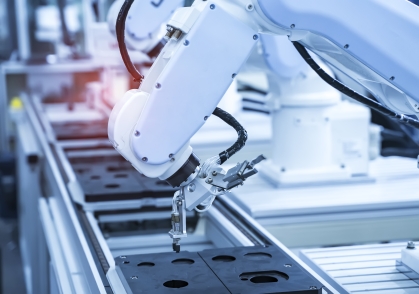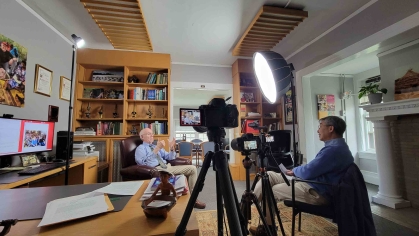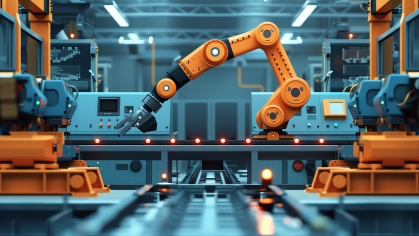Preparing Future Manufacturers for an AI-Based Industrial Revolution

The following article was part of a Star-Ledger and NJ.com op-ed series on engineering fields that will change the world by Rutgers School of Engineering faculty.
Medical implants customized for each patient. One-of-a-kind automobiles customized by the buyer and purchased direct from an automaker. Tiny batches of custom-built molds and dies needed by a specialty factory.
Today, such fine-tuned products are difficult to manufacture and prohibitively expensive. But manufacturing engineers and computer scientists are developing an artificial intelligence-fueled revolution in personalized smart manufacturing. Over the next decade, it will propel U.S. manufacturers to new heights of efficiency, flexibility, quality profitability and sustainability.
Today, many U.S. factories are getting ready by digitalizing every machine involved in manufacturing – from 3D printers and steel-cutting lasers to conveyor belts – with high-resolution cameras, 3D scanners and thermal and other process sensors. Each second, these devices gather an immense amount of data about the machines’ performance. But in today’s state-of-the-art world, most of that data just sits there without being put to good use. It’s too complex, and exists in too many disparate formats, to be analyzed in any useful way across the value chain of manufacturing.
What’s needed are powerful algorithms able to analyze all factory-wide production data in real time, and use it to make split-second decisions for quality control -- and a way to feed those decisions back to the machines themselves, still in real time, to fine-tune the way they function. The data would run in a loop, from the machines to a cloud-based software and back to the machines themselves.
In today’s factories, a production breakdown often isn’t noticed until it has produced an entire batch of defective products or blocked the manufacturing flow. The discovery of what went wrong can create costly delays. But the smart manufacturing revolution will enable factories to predict a breakdown before it happens – for example, by noticing that a machine is close to overheating or malfunctioning – and fix it through the 5G network without interrupting production.
More than just responding to problems, AI-driven smart factories will find new ways to increase their efficiency and output by analyzing the data on customer needs. They will free up time and resources for projects that were previously unprofitable, such as creating small batches of custom-made products at reasonable prices.
Developing the right AI solutions will require not just computer science and mathematical/statistical know-how, but the expertise of engineers who work in manufacturing according to Dr. Yuebin Guo. Rutgers School of Engineering is bringing these types of expertise together in a small production-scale factory of the future. Equipped with modern 3D printers, CNC machines, robots, various sensors linked to each other and a governing AI system via a 5G connection, our live demo of a smart manufacturing factory will be able to create actual parts such as jet engine blades for United Technologies.
Along the way, this factory will test various ways an AI can work in real time to analyze customer data and production data to make decisions for greater efficiency. This prototype represents the highest level of what a university-based research center can do for engineering-related industries.
Our collaboration with U.S. manufacturers is not new. Since 2016, Weihong “Grace” Guo of the Rutgers School of Engineering has worked with Ford Motor Company and its Global Data Insight and Analytics (GDI&A) team on research focused on big data analytics to bolster quality and streamline manufacturing processes. As part of Ford’s alliance with Rutgers, Guo’s research team has developed data analysis methods that have made manufacturing operations more efficient.
Based on current research and progress in this field, the coming decade promises to see significant advances in the AI- based industrial revolution.
Weihong “Grace” Guo is an assistant professor of industrial and systems engineering at Rutgers University’s School of Engineering. Her current research focuses on data fusion methods in the interface between applied statistics and system control/optimization.
Yuebin Guo is the Henry Rutgers Professor of Advanced Manufacturing, Department of Mechanical and Aerospace Engineering. At Rutgers University, his research focuses on smart manufacturing, manufacturing innovation and workforce development.


